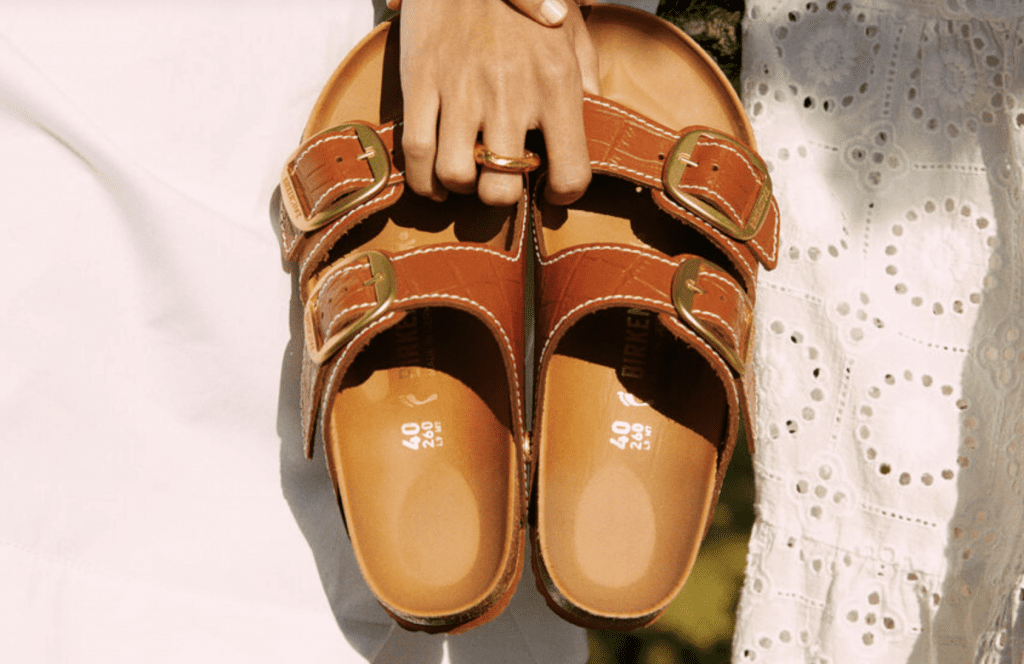Lord & Taylor, one of the oldest departments stores in the U.S., filed for bankruptcy protection with the U. S. Bankruptcy Court for the Eastern District of Virginia on August 2. The nearly 200-year old department store chain’s owner, fashion rental startup Le Tote Inc., filed for Chapter 11, as well, after acquiring Lord & Taylor from Saks Fifth Avenue owner Hudson’s Bay Co. for $71 million last year, and “taking over its 38 locations and hoping to propel the venerable department store toward new, younger shoppers,” per NPR. Le Tote revealed in a court filing that its companies reported revenue of $253.5 million in 2019.
The Lord & Taylor/Le Tote bankruptcy filing joins those of a growing list of brands and retailers that have sought out legal protection from creditors, particularly in light of the enduring impacts of COVID-19, which has accelerated the financial woes of many already-struggling companies, including well-known department store chains, such as Neiman Marcus and J.C. Penney, and individual brands like J. Crew, Brooks Brothers, John Varvatos, and G Star Raw.
Le Tote v. Urban, FTC v. Lord & Taylor
The bankruptcy filing also comes amid an enduring legal squabble for Le Tote, which filed suit against Urban Outfitters in June. In the suit, Le Tote accused Philadelphia-headquartered Urban Outfitters of gaining access to a sweeping amount of confidential information about the workings of its fashion rental business under the guise of a potential acquisition, only to up-and-abandon the M&A discussion and launch a copycat rental service of its own to “compete directly with Le Tote.”
In doing so, Urban breached the parties non-disclosure agreement, according to Le Tote, and misappropriating an array of “business, engineering and technical information, including plans, formulas, compilations, techniques, processes, procedures, and programs, [which] constitute trade secrets.”
That case is currently underway in a federal court in Pennsylvania.
Hardly a stranger to legal action, itself, Lord & Taylor famously came under the microscope of the Federal Trade Commission (“FTC”) in 2015 after it enlisted 50 influencers and Nylon Magazine to participate in a “Design Lab” advertising campaign without requiring any of the parties to reveal that they were compensated for their endorsements.
According to the complaint that the FTC filed against Lord & Taylor (none of the influencers or Nylon Magazine were named in its complaint), the department store chain “gifted the Paisley Asymmetrical Dress to 50 select fashion influencers who were paid, in amounts ranging from $1,000 to $4,000, to post on the social media platform Instagram one photo of themselves wearing the Design Lab dress during a specified timeframe during the weekend of March 27-28, 2015.” While the influencers were given the “freedom to style the dress in any way they saw fit, Lord & Taylor contractually obligated them to exclusively mention the company using the ‘@lordandtaylor’ Instagram user designation and the campaign hashtag ‘#DesignLab’ in the photo caption,” and to tag Lord & Taylor in the photos, themselves.

“Although Lord & Taylor’s Design Lab influencer contracts detailed the manner in which [it] was to be mentioned in each Instagram posting,” the FTC asserted that the contracts did not require the influencers to disclose in their postings that Lord & Taylor had compensated them, and Lord & Taylor did not “otherwise obligate the influencers” to disclose that.
At the same time, the FTC claimed that “Nylon posted a photo of the Paisley Asymmetrical Dress, along with a Lord & Taylor-edited caption, on its Instagram account during the product bomb weekend, [and] although paid for, reviewed, and pre-approved by Lord & Taylor, Nylon’s Instagram post failed to disclose that Lord & Taylor had paid for the posting.” The same goes for an article that magazine ran about the Design Lab collection in its online magazine on March 31, 2015.
The FTC asserted that thanks to the influencers in play (from Something Navy’s Arielle Charnas and Natalie Off Duty’s Natalie Lim Suarez to Cara Santana and Marianna Hewitt), the Design Lab Instagram campaign was a success – reaching 11.4 million individual Instagram users, and resulting in 328,000 brand engagements with Lord & Taylor’s own Instagram user handle. All the while, the dress sold out. The problem, according to the FTC: the campaign ran afoul of the law. To be exact, the government agency found that because the influencers’ posts and Nylon’s post/article lacked the proper disclosures (i.e., #ad or #sponsored, etc.), they were potentially misleading to consumers, and deceptive in accordance with the terms of the FTC Act.
Fast forward to March 2016, and the FTC revealed that Lord & Taylor had “agreed to settle charges that it deceived consumers by paying for native advertisements, including [influencer endorsements and] a seemingly objective article in the online publication Nylon and a Nylon Instagram post, without disclosing that the posts actually were paid promotions for the company’s 2015 Design Lab clothing collection. “In settling the charges, Lord & Taylor is prohibited from misrepresenting that paid ads are from an independent source,” the FTC asserted. As part of the settlement, Lord & Taylor was also “required to ensure that its influencers clearly disclose when they have been compensated in exchange for their endorsements.”
Speaking about the settlement at the time, which was headline-making in that it was one of the first efforts (if not the first effort) by the FTC to specifically focus on the role of influencer marketing in advertising, Jessica Rich, Director of the FTC’s Bureau of Consumer Protection, said “Lord & Taylor needs to be straight with consumers in its online marketing campaigns. Consumers have the right to know when they’re looking at paid advertising.”
Since then, the FTC has paid increased attention to influencer marketing, releasing supplement guidance to its Endorsement Guides that is directed exclusively at influencers and the disclosures they must make when endorsing brands/products with which they have a “material connection.” The FTC has also taken to sending letters to influencers and brands that it suspects have such a connection but that have failed to notify consumers about by way of their social media posts.











